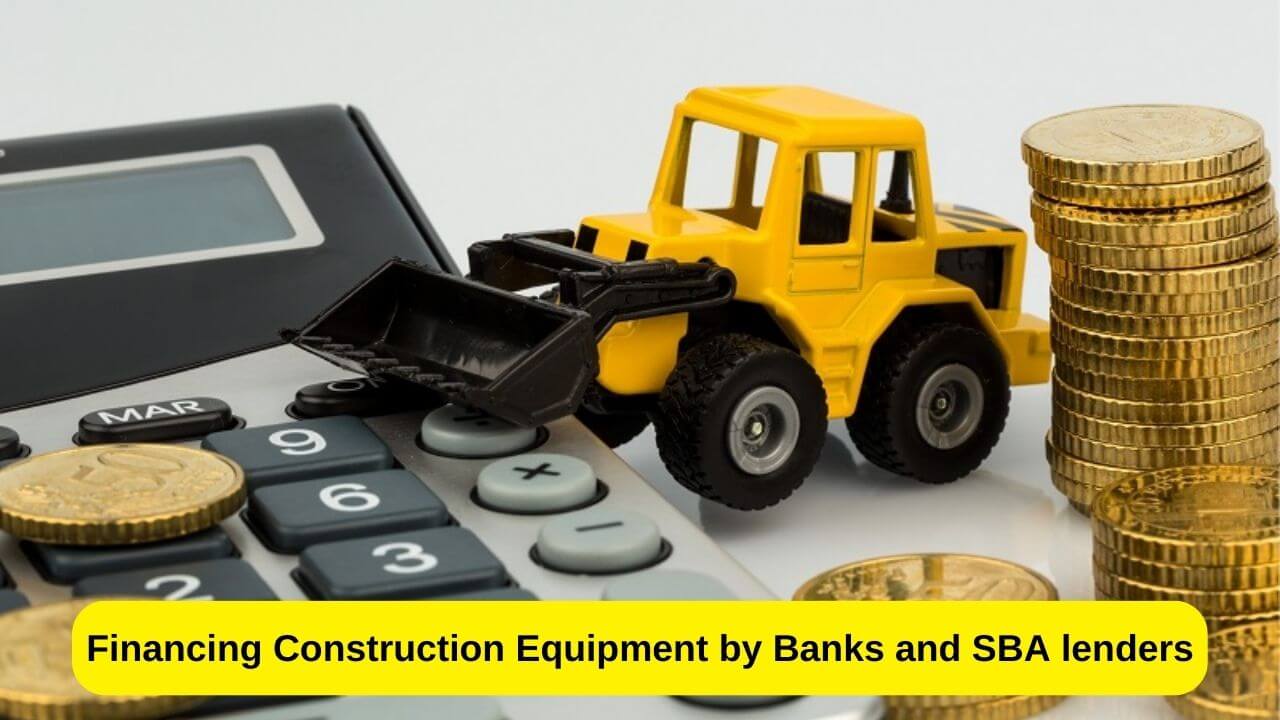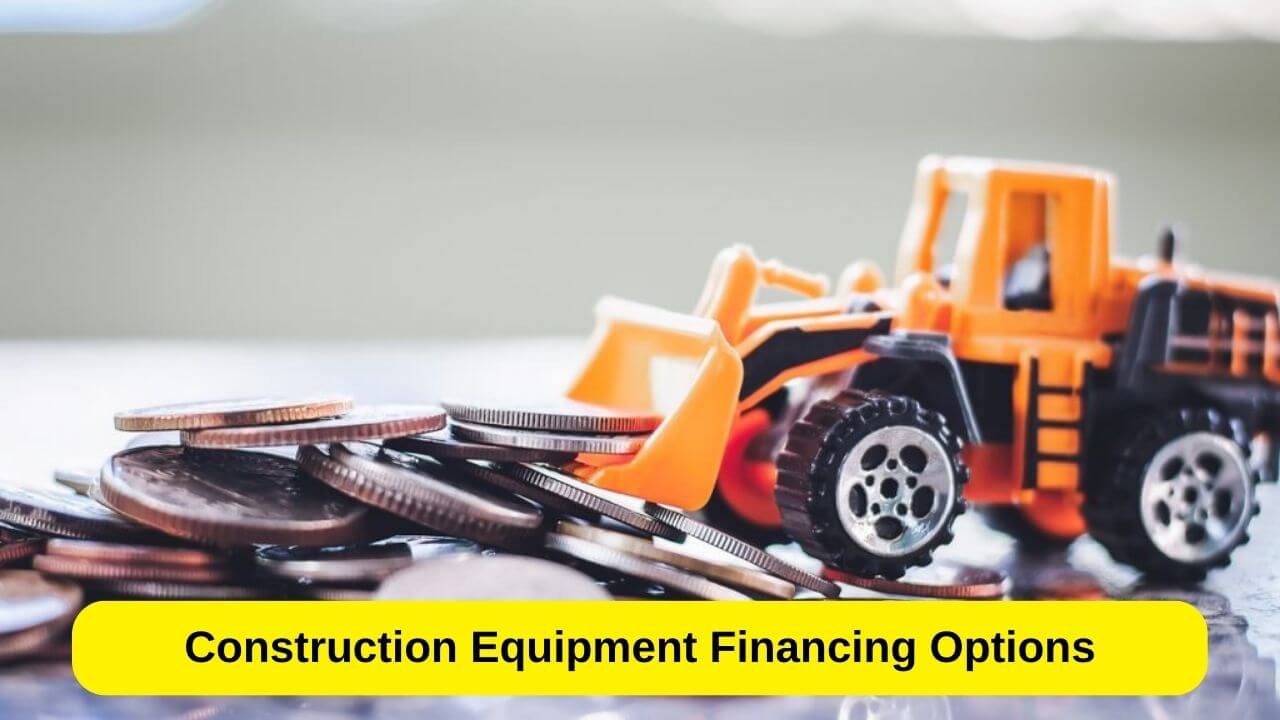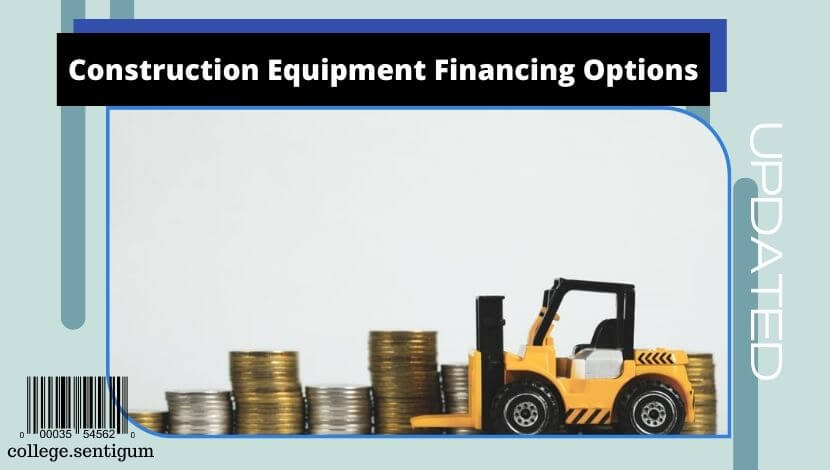Construction Equipment Financing Options – Construction equipment financing refers to the process of securing funds to acquire or lease construction equipment.
The primary purpose of construction equipment financing is to alleviate the upfront cost burden of purchasing or leasing equipment outright.
Construction equipment financing typically involves a lender, such as a bank, financial institution, or specialized equipment financing company.
The terms and conditions of construction equipment financing can vary based on factors such as the borrower’s creditworthiness, the value of the equipment being financed, the repayment period, and the specific financing option chosen (e.g., loan, lease, or equipment financing agreement).
It’s important for businesses to carefully evaluate their equipment needs, financial capabilities, and the terms of the financing options available to choose the most suitable and cost-effective solution for their construction equipment requirements.
Financing Construction Equipment by Banks and SBA lenders

Construction equipment financing from banks and Small Business Administration (SBA) lenders can provide businesses in the construction industry with access to capital for acquiring or leasing equipment.
Here’s an overview of financing options offered by banks and SBA lenders:
Banks

Here are some overview of financing options offered by banks, namely:
Equipment Loans
Banks offer equipment loans specifically tailored for purchasing construction equipment.
These loans provide businesses with a lump sum amount to acquire the equipment.
The equipment itself typically serves as collateral for the loan.
Repayment terms, interest rates, and eligibility criteria vary among different banks.
Lines of Credit
Banks may offer lines of credit that can be used for equipment purchases.
With a line of credit, businesses have a predetermined credit limit and can draw funds as needed.
This can provide flexibility in financing construction equipment as you only pay interest on the amount used.
Asset-Based Financing
In some cases, banks may provide asset-based financing where the construction equipment is used as collateral for a loan.
The loan amount is based on the appraised value of the equipment.
This can be an option if you have valuable existing equipment to leverage for additional financing.
Small Business Administration (SBA) Loans
Here are some overview of financing options offered by Small Business Administration (SBA) Loans, such as:
SBA 7(a) Loans
The SBA offers loan programs, including the 7(a) loan program, which can be used for various business purposes, including equipment financing.
SBA 7(a) loans are partially guaranteed by the SBA, reducing the risk for lenders and potentially improving loan terms.
These loans are typically provided by participating banks and lenders and may have longer repayment terms and lower down payment requirements compared to conventional loans.
SBA 504 Loans
SBA 504 loans are designed for the acquisition of fixed assets, including construction equipment.
These loans are typically used for larger equipment purchases or real estate projects.
SBA 504 loans involve a partnership between a Certified Development Company (CDC), a bank, and the borrower.
The CDC provides a portion of the financing, the bank provides a loan, and the borrower contributes a down payment.
SBA Microloans
SBA microloans are smaller loan amounts (up to $50,000) that can be used for various business purposes, including equipment financing.
These loans are provided by nonprofit organizations, community development financial institutions (CDFIs), and some banks participating in the SBA Microloan Program.
Both bank and SBA lenders typically have specific eligibility requirements and application processes.
It’s important to research and compare the offerings of different lenders, including interest rates, fees, repayment terms, down payment requirements, and any collateral or documentation needed.
Working closely with lenders and understanding their specific requirements can help you secure construction equipment financing that suits your business’s needs.pa
Construction Equipment Financing Options

When it comes to financing construction equipment, there are several options available. The most common methods include:
Equipment Loans
This involves borrowing a specific amount of money from a lender to purchase the construction equipment.
The equipment itself serves as collateral for the loan, and you make regular payments, including interest, over a predetermined period until the loan is fully repaid.
Equipment Leasing
Leasing allows you to use the equipment for a fixed period while making regular lease payments.
At the end of the lease term, you may have the option to purchase the equipment at a predetermined price, extend the lease, or return the equipment.
Leasing can be a good option if you prefer flexibility or anticipate needing updated equipment in the future.
Equipment Rental
If you only need the construction equipment for a short-term project or sporadic use, renting might be a viable option.
Equipment rental companies allow you to rent equipment for specific periods, typically charging a daily, weekly, or monthly rate.
Equipment Financing Agreements (EFAs)
EFAs are similar to loans but are structured as installment sales contracts.
You agree to purchase the equipment from the financing company, which retains a security interest in the equipment until the financing is fully paid.
Once the payments are complete, you own the equipment outright.
Manufacturer Financing
Some equipment manufacturers offer financing options directly to customers.
They may provide competitive interest rates and flexible terms, making it convenient to finance the purchase of their equipment.
Small Business Administration (SBA) Loans
If you qualify, the U.S. Small Business Administration offers loan programs that can be used for various business purposes, including equipment financing.
SBA loans often have favorable terms and interest rates.
Conclusion
In conclusion, construction equipment financing offers businesses in the construction industry the opportunity to acquire or lease necessary equipment while minimizing the upfront financial burden.
Banks provide equipment loans, lines of credit, and asset-based financing.
Equipment loans allow businesses to borrow a specific amount to purchase the equipment, with the equipment serving as collateral.
Lines of credit offer flexibility, allowing businesses to draw funds as needed for equipment purchases.
Asset-based financing utilizes the value of existing equipment as collateral for additional financing.
SBA lenders offer various loan programs, such as SBA 7(a) loans, SBA 504 loans, and SBA microloans.
When considering construction equipment financing options, it’s crucial to evaluate factors such as interest rates, repayment terms, eligibility criteria, collateral requirements, and fees.
Ultimately, construction equipment financing provides businesses with the means to acquire or lease the necessary equipment, enabling them to take on construction projects and grow their operations effectively.
